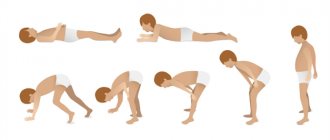What is social phobia
Social phobia can be recognized by the following unpleasant manifestations: a person is afraid to express himself in the presence of other people, and experiences panic before communicating with them.
As a result of the development of this mental disorder, the individual becomes hostage to negative emotions, irrational fears without reason when communicating with other people. Social phobia can cause chronic depression. The resulting feeling of inferiority and the inability to make decisions become provocateurs for the development of more complex problems and disorders. It is for this reason that scientists have dubbed social phobia the disease of missed opportunities.
Reward yourself
Instead of berating yourself for every little mistake you make after social interactions, you should reward yourself. Naturally, not with the help of alcohol or new tattoos. You should at least pat yourself on the back for being brave enough to attend the party and face your fear. Each time you counterattack your fears, you reduce their impact on you, gaining the courage to step into the ring with them again. You take back control of your life time after time. You deserve praise and you will be more motivated next time.
Who is most susceptible to social anxiety?
Psychologists assign the main role in the formation of social phobia to heredity. It is often aggravated by unfavorable environmental factors or family circumstances.
According to the observations of psychologists, the risk of “earning” social phobia is 2-3 times higher in children whose parents have this problem. True, it is impossible to accurately determine whether this occurs as a result of genetic inheritance or due to the fact that the child is “infected” with similar fears when observing the behavior of his parents. The risk of developing social phobia is increased by excessive criticism or guardianship in childhood.
In most cases, signs of social phobia appear before the age of 11 (50% of cases), before the age of 20 – in 80% of cases. In addition, people with increased mental sensitivity are most susceptible to developing social phobia. The impetus can be psychological trauma caused by a humiliating event, psychological or physical violence, or rejection by peers. According to statistics, a high degree of social phobia is observed in 10% of people worldwide.
Call the doctor
If social anxiety is preventing you from living a normal life, you should call your doctor and make an appointment, as you most likely need professional help. Social phobia manifests itself slowly, gradually and unnoticed, just like thinning hair. Cognitive behavioral therapy is one of the most effective ways to treat it, as opposed to self-medication, which is not.
Found a violation? Report content
What factors can cause the development
A person cannot be afraid of social contacts in all their manifestations without reason. In the life of each individual there may be factors that provoke social phobia.
Today, experts have identified the following factors that cause the development of fear of society:
- excessive strictness in raising a child;
- excessive care from parents;
- genetically inherited character traits.
It is worth noting that the easiest way to get rid of this disorder on your own is for those people who simply inherited a similar trait from their relatives. In other cases, problems with self-esteem that prevent you from living calmly and fully and interacting with others will be much more difficult to eliminate.
Experts have identified two main causes of social anxiety disorder:
- Genetic factor.
- Wrong upbringing.
Analyze your childhood and remember:
- Did any of your parents suffer from this disease?
- weren't your mom and dad too protective and caring for you?
- Didn't your parents require you to be an example for others?
It happens that fear of people appears due to long-term psychological bullying. Even sympathy for the victim of mobbing and fear of being in her place can lead to social phobia. Fear of communication also arises in a person who has witnessed the humiliation of another person.
How do I know if I have social phobia? Social phobia test
Let yourself relax
The more you worry and allow worry to rule your life, the more you wire your brain to worry and worry, and the more you associate your worry with specific places and events. You might want to try visualization techniques to ease your anxiety. Create a mental picture of relaxation. It could be a sunset on the beach, trees swaying in the gentle breeze, leaves slowly falling in your yard. It could be the rhythmic swing of a hammock under a blue sky and the chirping of birds in the background. When you visualize relaxation, try to involve as many senses as possible. What does this place smell like? What do you hear? Do this daily until it becomes as natural as using a smartphone.
Leo and Taurus. The union of these zodiac signs is special - they are connected karmically
A table and three benches: neighbors made a dining area out of wire spools
A black couple gave birth to an unusual boy. Today he has grown noticeably (photo)
Symptoms
Before looking for ways to get rid of social phobia on your own, it is worth carefully studying the symptomatic picture of this disorder. Having correctly recognized your problem, you can effectively solve it, both at home and with the help of specialists.
The following distinctive features of social phobia from ordinary shyness or isolation of a person have been identified:
- feeling of inferiority;
- fear of any public speaking;
- panic attacks when there are large crowds of people in a public place;
- fear experienced in the company of strangers;
- shyness, which can manifest itself quite absurdly;
- strong resentment experienced when criticized;
- the desire to limit one’s space for existence.
People with such a set of behavioral characteristics can safely suspect that they have a fear of society and begin to treat it on their own. Otherwise, the problem will develop to such an extent that any assessment of the action, even a positive one, will be perceived inadequately.
There are also a number of physical signs that social phobias exhibit before upcoming contact. These include:
- headache;
- increased heart rate;
- dyspnea;
- tremor;
- facial redness and feeling of heat;
- pale skin and chills;
- increased sweating.
It is important to recognize and treat a problem such as social phobia in time before its consequences become dangerous to a person. A constant feeling of inferiority can cause a fear of closed or open spaces, chronic depression, and even lead a person to suicide.
The shyness of a social phobe can reach the point of absurdity
Social phobia has characteristic signs that appear during an attack:
- physiological – pain in the chest, abdomen, migraine, nausea, tremor, increased sweating, muscle weakness with simultaneous tension, shortness of breath, tachycardia, pale face, dilated pupils;
- emotional – terrible fear, anxiety, irritability, anticipation of an unpleasant moment, the “déjà vu” effect;
- mental – loss of attention, dark memories caused by fear;
- behavioral – restless movements, fussiness, stupor, severe fatigue, intermittent speech.
The behavior of a person susceptible to social phobia is avoidant. Such a person breaks off contact with society: he withdraws from communicating with acquaintances, is afraid to make new friends, does not attend holiday events, stops using public transport, etc. Detachment from society makes him an unsociable homebody.
A person prone to social phobia is visible to the naked eye. He is characterized by:
- panic when he is criticized and evaluated (appearance, abilities, behavior);
- take responsibilities too seriously;
- delve into oneself;
- get irritated (even over trifles);
- be in a pessimistic mood, expecting the worst;
- depend on other people's opinions.
Important! If you yourself are in a situation of fear of people, then you will easily notice a person with similar signs.
Anxiety-phobic disorder often develops into a panic attack. For example, if fear is caused by a new stressful situation. In addition, harmful addictions and habits, as well as other phobias, become companions of this disease.
A person suffering from social phobia is overly focused on himself and his experiences - on how he looks, how he behaves. It seems to him that the attention of others is directed only to him, and he is mentally afraid of how he will be appreciated and whether he will live up to the expectations of strangers. In his desire to make a good impression on people, he becomes too dependent on their opinions.
Such fears and worries are revealed by physiological manifestations: trembling in the arms and legs, sudden sweating, redness of the skin of the face, palpitations, nausea, impaired breathing and gait, etc. Moreover, such external manifestations further aggravate the internal state.
Social phobes tend to store negative memories in their memory and constantly return to them, constantly tormenting themselves with an analysis of the situation in which, in their opinion, they made a mistake.
As a rule, people suffering from social phobia lack self-confidence. This underestimation changes their behavior: they try to avoid situations in which they feel awkward or that make them anxious. Psychologists call this behavior avoidant.
Silence your inner voice
There is likely a constant voice within you that fills you with fear and doubt. You need to combat your inner voice's negative statements with truth, such as "you are more than capable of handling what's coming," "there are so many reasons why things will work out well," and "you are competent, experienced, and deserving." to be happy". There are four types of questions you can ask yourself if you feel a fear attack coming on. What evidence is there to support such thoughts? Are there other ways to look at this situation? Is this situation really as bad as it seems? What can you do to solve the problem or feel better?
Why is social phobia dangerous?
The quality of life of people with social phobias seriously suffers: for fear of being criticized or not meeting other people’s expectations, they begin to avoid contact with people, stop attending concerts, parties, restaurants, do not go on dates and almost turn into hermits. Social phobes feel calm only at home.
The negative impact of social phobia should not be underestimated, because it is not without reason that it is characterized as a disease of missed opportunities. How many smart, intelligent and talented people were unable to show their abilities, realize themselves, arrange their personal lives for fear of receiving a negative assessment of their actions or their appearance!
One of the unsuccessful and dangerous methods that people resort to to get rid of depression and anxiety is alcohol and drugs. According to statistics, 20% of people suffering from social phobia also have alcoholism, because alcohol and drug addiction develops quite quickly, especially in people with an unstable psyche.
Quite often, social phobia is accompanied by other mental disorders, including suicidal tendencies. Thus, social phobia is not as harmless a disease as it might seem at first glance. And in order not to lead to depression, panic disorders, etc., it is worth thinking about how to get rid of it.
Pretend to be a reporter
Filming for remaining episodes of Supernatural begins in Vancouver
Ice cream, cookies and whipped cream: preparing a refreshing summer dessert
The wedding did not take place due to the groom's betrayal. On this day, friends came to the girl
If you have nothing to say in public, you should learn to ask questions as they will be a great help for you. Ask questions that require a detailed answer, such as, for example, “How did you meet him?”, or you can simultaneously ask for advice: “Has anyone seen a good movie?” Also ask questions about the answers given to you to deepen the conversation. Questions about where to get a drink, where to go to the bathroom, and when the party will end don't count.
Getting rid of the problem yourself
Social phobia is a disorder that can be overcome with skillful action. The main thing is to make efforts at the right time. All experts unanimously say that the most effective actions are those taken independently during the stage of awareness of the existing problem. Understanding that actions are controlled by thoughts greatly helps to fight social phobia and rise above your fears, which are irrational and destructive.
Positive thinking
You can get rid of overwhelming negativity on your own by contrasting habitual bad judgments with positive ones. A measure such as pronouncing positive judgments out loud, and not just scrolling them through your head, also helps.
As a result, a person will have the opportunity to have a harmonious existence, where it is possible to enjoy every moment and event.
This method allows you to effectively treat social phobia with your own efforts. To begin with, you can choose your own reflection in the mirror as your main listener. Using facial expressions, gestures and intonations, try to convince the “listener” of something. Experts recommend using intelligence and imagination to convey your emotions in the most unpredictable way.
After an individual can freely express his emotions and feelings to the mirror, another method can be applied on how to cope with social phobia on his own. Its essence is to exchange your experiences, emotions and impressions with loved ones and family. This will gradually restore frozen communication skills, and every day it will help to overcome the fear of social contact.
Manifestations of fear in the form of tremors or dizziness can be overcome quite easily. Concentrating on deep breathing is a great way to regain balance and stability in your psychological state. Transfer all mental processes to alternating inhalations and exhalations, count their number. Due to oxygen enrichment, the body will return itself to its normal state.
The duration of this process should in no case become an obstacle. The main task of this method is to eliminate every frightening situation.
Examples of such “horror stories” could be the following situations:
- the need to make a call to utility services;
- independent trip to a distant store;
- registration in a section or circle.
It is necessary to write out and overcome each of your fears. This is the only way to adequately resist panic and become a self-confident person who can fully enjoy life and harmony in the soul.
Self love
When thinking about how to overcome social phobia on your own, it is worth answering the question of whether a person has protected himself from people who are prone to constant criticism and hysteria. However, it is worth remembering that fencing does not consist of trying to hide in a corner, but of building a psychological barrier that protects against the influence of unwanted stress.
There is an opinion that people who respect themselves should be a little proud. Such individuals simply do not pay attention to criticism and comments from those people whom they consider unworthy of respect. Do not allow such spiteful critics to establish themselves through stressful situations and unnecessary worries.
Self-love is necessary to overcome the problem
Try breathing techniques
Try special breathing techniques taught in yoga classes. These are techniques related to Ayurvedic medicine that bring the mind and body into a state of calm and neutrality. For decades, these techniques have been used by top athletes around the world to relieve stress and anxiety. Close one nostril with your finger, exhale through the open nostril, and then inhale through the same nostril. After each inhalation, change nostril. If you notice that you find it easier to breathe through one nostril than the other, don't be alarmed, this is normal.
How to get rid of social phobia: working with thoughts
Social phobia is tension, first of all. Whether you are afraid of public speaking, meeting a new company, taking an exam, or having someone watch your work, you are tense in all these situations.
Fear, anxiety - all this responds in the body with certain muscle tension. Observe yourself: what happens to your body when you imagine this unpleasant situation? Is your head pressed into your shoulders? Or is your back hunched? Or do your hands begin to twitch nervously, trembling and redness occur?
If your social anxiety is largely accompanied by physical symptoms, the same measures as for a panic attack will help you. I also wrote about this in detail in the article “how to get rid of pain.” You will have to master the skills of working with the body, learn to be aware of it in general (for starters), and then gradually learn to control different muscle groups, especially those that are involved in your phobic reaction.
What do you need first of all if your speech/interview/meeting new people/long stay in a public place is tomorrow? Start practicing relaxation the day before.
Do a general relaxation exercise: in your mind’s eye, one by one, “look through” all muscle groups (starting, for example, from the tips of your toes to the very top of your head), try to feel their tension, and then relax as much as possible.
To do this, you can use such imaginative metaphors as, for example, imagining that your muscles are like jelly, or that you are lying on a heated stone and “melting,” or that some magical hands are stroking you, or that your body is immersed in warm water. water. It is important that you are sitting or lying comfortably and not drowsy before going to bed.
The essence of this exercise is to learn to relax while remaining in the active phase of life, in consciousness. Your attention should be active, alert, closely monitoring all manifestations of your body, but the body itself should become relaxed.
It makes sense to practice this skill at least a little before a social situation that is alarming for you. When the crucial moment comes, you will be able to apply this skill before plunging into an unpleasant event for you, and you will enter it less tense, and as a result, there will be fewer emotions of fear and anxiety, as well as negative bodily manifestations.
In most cases, a person susceptible to social phobia is more often in his own head, in his thoughts, i.e. in an imaginary world. The most common thoughts that haunt a person in a situation of fear of people:
- "they think I'm an idiot"
- “He probably thinks I’m...”
- “What if they laugh at me?”
- "They'll probably think that I..."
- and behind this there is always a fear of rejection and negative evaluation.
We'll talk about thoughts later, but now let's pay attention to how best to return to reality, to the here and now, in order to help ourselves get out of gloomy assumptions and see the world as it is.
Nonverbal contacts can help with this. Nonverbal contacts are the use of facial expressions, postures, gestures, and gaze to establish relationships with others. Let's say you have a performance coming up.
Look around the room before you start. Find several people in your visibility zone who evoke your unaccountable sympathy and disposition. Perhaps they have a kind look, perhaps you associate them with some pleasant characters, etc. And during your speech, try to make eye contact with them.
And since far more people actually react positively to you than you are accustomed to thinking, your idea of universal hostility will gradually dissipate.
If you are haunted by fear of people when you get into a company, try to take an open position. It doesn't mean "fall apart", it doesn't mean "no intersections". Some people find it really comfortable to sit cross-legged or rest their head on their folded hands. The most important thing is not to curl up into a ball, not to hunch, not to wrap your arms around yourself as if the temperature in the room is sub-zero.
Ask yourself: how would you sit/stand in this room if there were no people there? How would you sit in this chair if no one was looking at you? And try to do just that, paying attention, first of all, to your comfort - it’s unlikely that anyone will want to condemn the desire to take a comfortable position.
Learn to communicate with people non-verbally. Do a simple exercise. In that part of the conversation where you can quietly remain silent and watch others, try to feel not WHAT they are saying, but HOW.
Try to attach meaning not to the information contained in their words, but to the tone, gaze, smile or grimace on the face, posture, gestures. I would even say - deliberately ignore the content of a person’s speech, focusing on other signals.
By doing this, you will achieve the fact that, firstly, again, you will find yourself much closer to reality than fantasies about what everyone around you thinks about you, and secondly, you will learn to recognize lies and insincerity well.
After all, a person generally does not control his nonverbal signals. Even if he tries to smile artificially, you will notice a sad or irritated look that contradicts this, clasped white fingers that do not correspond to this, for example, or clenched shoulders and a retracted head. And therefore, in the end, it will be much easier for you to feel how someone really treats you and it will be easier to overcome the fear of people.
By and large, social phobia is learned and has become automatic.
The treatment of social phobia, especially forms that are accompanied by depression, panic states, etc., is carried out by a psychotherapist. This treatment is complex, long-term and gradual. In simple cases, a person can help himself if he understands how he is ready to change his life: does he want to radically change his character or does he want to remain himself, but at the same time stop suffering from suspiciousness, obsessive thoughts and low self-esteem.
Note that changing character is a task that cannot be overcome without the help of a psychotherapist, since it is the same as declaring war on oneself. It can be compared to sex reassignment surgery. And it’s not a fact that the effort expended will be worth the result.
1. Determine the moments when the greatest discomfort occurs. For example, the tongue is “taken away” when you need to address a stranger, or your legs when you need to walk in front of everyone, etc. Then they need to be listed on a piece of paper, starting with the moments that cause slight awkwardness and ending with the most difficult (for example, speaking in front of a large audience).
2. Further, such situations, starting from the top of the list, should be created artificially. They will serve as training exercises and will help you acquire communication skills with other people. In particular, if a saleswoman who is rude or looks askance can easily ruin your mood for the whole day, you need to go to the store more often and ask her for advice.
Having felt confident in simple situations, you can complicate the task by trying to be more in the company of people and joining in the general conversation.
Group training to improve self-confidence, which can be found in any big city, can help solve this problem.
3. It is very important to remind yourself from time to time that you don’t need to try to please everyone: communicating with strangers also means that someone won’t like us. We must allow ourselves to be disliked by other people, and people to think badly of us. After all, not everyone arouses our sympathy either. And that's okay.
4. But you need to think well of yourself and praise yourself more often, noticing successes and not focusing on failures. It is not without reason that they say: “Love your neighbor as yourself,” from which it follows that loving yourself is good and that a person who does not love himself is not able to love others.
5. To love yourself, you need to accept your fears until you can get rid of them. It is best to learn to treat them with irony and condescension.
It is worth distinguishing from manifestations of social phobia from ordinary anxiety, which is inherent in all people in exciting situations, and you should not try to hide it, since this is an absolutely normal phenomenon.
6. People suffering from social phobia tend to mentally return to the negative past and relive it again and again. You need to prohibit yourself from doing this, since such actions plunge you into a state of depression. Thoughts should be aimed at future events, not past ones.
7. You cannot compare yourself with other people. We must remember that every person is unique, and you are one of them. Therefore, you need to accept, love and believe in yourself. Practice shows that someone who considers himself uninteresting and undeserving of attention will be perceived in the same way by other people.
8. A person with social phobia can often be identified by their facial expression, gait and manner of speaking, so it’s worth looking at yourself from the outside. If the conclusion is disappointing, you need to start working on yourself based on the opposite: feign self-confidence. Namely: straighten your shoulders, straighten your back, remove tension from your face. A light, friendly smile will not be superfluous.
People with low self-esteem often speak too quickly, as if they fear that their speech is uninteresting and therefore will not be heard to the end. Therefore, you need to get into the habit of speaking slowly, especially since this will give you time to think and construct phrases.
Get a mantra
Using self-persuasion actually produces real results. You should choose a mantra, slogan or quatrain that you can read in your head to prepare for an event, a performance, or just to go to a party calmly. You can take any line that seems right for you. It can be either psalms from the Bible or a song from a metal band. You should remember that the anticipation of an exciting event is usually much worse than the actual event itself.
The National Enquirer accuses Markle of stealing Diana's jewelry
How can you use yeast to increase your yield? Recipes for tomatoes and potatoes
Belle's song characterizes Sagittarius: Disney songs for every zodiac










